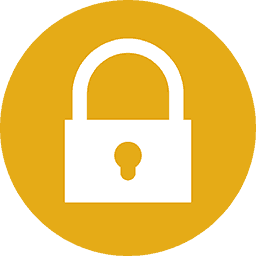RON
Remote Online Notary

Speed

Convenience

Security

Eco-Friendly

Quality
FAQ
Your Title Goes Here
WHAT IS RON?
HOW IS RON GOVERNED IN MD?
The Act makes monumental changes to the existing Maryland notary statutes by repealing Titles 18 and 19 of the State Government Article of the Annotated Code of Maryland and by replacing them with the Maryland Revised Uniform Law on Notarial Acts (MD RULONA) and Sections 18- 101 to 18-227 of State Government Article, Section 17-110(b) of Estates and Trusts Article and COMAR Regulations 01.02.08.01 to .17
MD RULONA expands traditional notarization practices to authorize electronic signatures by signer and notary public and electronic remote notarization where the signer and notary public are not in the physical presence of each other. Remote notarization allows a signer to virtually appear before the Maryland notary public (who is physically situated in Maryland) through audio-video communication technology (sometimes called on-line notarization). MD RULONA requires the use of an approved platform and an involved process which includes a test/quiz designed to confirm the identification of the remote signer. An audiovisual recording of the notarial act must be made and maintained in a tamper-evident medium for 10 years.
INFORMATION
- Allows notary to refuse to perform notarial act if notary is not satisfied that signer has the capacity to sign the document/record or is not satisfied that the signer’s signature is knowingly and voluntarily made
- Statute doesn’t require expertise on part of notary as to competency/capacity
- Can’t violate Maryland or Federal law if notary refuses to perform notarial act
PERSONAL APPEARANCE AND IDENTIFICATION OF INDIVIDUAL REQUIRED
- Signer must physically appear before notary public
- Provides that a remotely located individual/signer can comply with appearance requirement by using “communication technology” to appear before a notary
- Identity of signer can be confirmed by notary by way of personal knowledge, passport, driver’s license, consumer identification or verification of oath or authorization of a credible witness. (See outline discussion of verification of identity relative to remote notarization)
SIGNATURE IF INDIVIDUAL UNABLE TO SIGN (§18-208 State Government Article)
- Physical disability
- Alternative process allows disabled person to appear before notary public and direct another individual (who also appears before the notary) to sign the disabled person’s name to the record/document
- Notary must insert words in notarial certificate/acknowledgement “signature affixed by Robert Smith at the Direction for John Doe.”
NOTARIAL ACT PERFORMED IN STATE OF MARYLAND
- Notarial Officers can be
- A notary public of the State of Maryland
- A judge, clerk or deputy clerk of a court of the State of Maryland
- A magistrate (civil officer or lay judge who administers law) appointed by a Court of the State of Maryland
- Notarial act performed by a Maryland notarial officer does not require the title agent to confirm
- Proof that signature in certificate of notarial act is that of the individual identified as the notary officer
- Proof that individual named in certificate of notarial act holds the designated office of notarial officer
- Proof that individual holding the designated office has the authority to perform notarial acts
NOTE: These 3 steps are required where we have a notarial act performed in a foreign country by a local foreign country notary. An original raised seal Apostille or Consular Authentication meets the 3 step requirement.
NOTARIAL ACT IN ANOTHER STATE
- Statute provides parity of recognition in Maryland for notarial acts performed by notarial officers of another state where the notarial act occurs in that other state Update of MD RULONA 11/03/2021 Fall Seminar Page 4 of 8
- Title insurers do not typically require its title agents to establish the authority, genuineness of signature or designation of title of the notarial officer
NOTARIAL ACT PERFORMED FOR REMOTELY LOCATED INDIVIDUALS (§18-214 State Government Article)
- This statute’s requirements for remote notarizations are different from those temporarily allowed under Governor Hogan’s Executive Order 20-03-30-04 authorizing remote notarizations during the COVID-19 state of emergency
- Statute authorizes Maryland commissioned notary public “physically located in the State of Maryland” to perform a notarial act using “communication technology” (i.e. an electronic device or process that allows a notary public and a remotely located individual to communicate with each other simultaneously by sight and sound) for a remotely located individual if the notary public:
- Has personal knowledge of the identity of the remotely located individual; or
- Has obtained satisfactory evidence of the identity of the remotely located individual by:
– presentation of an identification credential (i.e. driver’s license, passport, etc.); and Credential analysis which is a process or service by which a 3rd party confirms the validity of an I.D. (like a driver’s license) by a review of public or private data sources; and
– Identity proofing of an individual, which is a process or service which a 3rd party provides a notary public with a means to certify the identity of a remotely located individual by a review of personal information from public or private data sources - Is reasonably able to confirm that the record/document before the notary public is the same record/document in which the remotely located individual made a statement or on which the individual executed a signature
- The notary public or person acting under the direction of notary public creates an audiovisual recording of the performance of the notarial act and retains it for 10 years.
- This statute also authorizes a Maryland commissioned notary public physically located in the State of Maryland to perform a notarial act using “communication technology” for a remotely located individual who is outside of the United States as long as the record/document involves property located in the U.S. or U.S. territories and the Maryland notary public has no actual knowledge that remote notarization is prohibited by the foreign country
NOTE: Most Maryland title insurers will not require their title agents to research whether or not a foreign country prohibits remote notarization. However, if the title agent has actual knowledge that remote notarization is prohibited by a particular foreign country then use of remote notarization should not be made.
NOTE: 3rd party vendor “communication technologies” relative to credential analysis and identity proofing will not work and cannot be used if the individual who is remotely located in the foreign country is not a U.S. citizen or permanent visa resident of the U.S. Remote notarization should only be used where a U.S. citizen or permanent visa U.S. resident is temporarily visiting a foreign country.
- A certificate of notarial act (written acknowledgement) must indicate that the notarial act involved a remotely located individual and was performed by using “communication technology.”
- Prior to performing a notarial act, a Maryland notary public must also notify the Secretary of State (SOS) that he/she intends to perform notarial acts facilitated by communication technologies and the notary must inform the SOS which communication technology and communication technology vendor or vendors he/she will be using. The SOS has created a notification form which the notary public must submit to the SOS prior to receiving SOS authorization to perform remote notarizations. NOTE: Remote notarization notification forms submitted during the COIVD-19 state of emergency will not work under the new law, so a new SOS notice form is required to be used. Also, the new SOS form must be re-submitted to SOS upon each renewal of a notary public’s commission
- Identity proofing (verify/certify identity of remotely located individual) and credential analysis (validity of I.D.) must be performed by a reputable third party vendor approved by SOS. Identity proofing must be performed through a knowledge based authentication that meets the following requirements (see COMAR 01.02.08.01 through 01.02.08.04):
- Each remotely located individual must answer a quiz of a minimum of 5 questions related to the individual’s personal history or identity, formulated through public or private data sources
- Each question must have a minimum of 5 possible answers – At least 80% of the questions must be answered correctly
- All questions must be answered in 2 minutes
- If the remotely located individual fails the first attempt at the quiz the individual may retake the quiz one time within 24 hours
- During the quiz retake a minimum of 40% of the prior questions must be replaced Update of MD RULONA 11/03/2021 Fall Seminar Page 6 of 8
- If the remotely located individual fails a second attempt at passing the quiz, the individual is not allowed to retry with the same notary public within 24 hours of the second failed attempt
- The notary public must not be able to see or record the quiz questions or answers
- Credential analysis (to verify the validity of an identification credential presented by a remotely located individual) must use public or private data sources and must enable the notary public to visually compare for consistency the information and photo on the I.D. credential and the remotely located individual as viewed by the notary public in real time
- Communication technology must provide reasonable security measures to prevent unauthorized access to – The live transmission of the audio-video feeds – The methods used to perform credential analysis and identity proofing – The electronic record that is the subject of the notarial act The communication technology vendor must receive written authorization from SOS before allowing its technology to be used by Maryland notary publics and must provide technology training to the Maryland notary public and must notify SOS as soon as the vendor becomes aware of a breach. SOS publishes a list of approved communication technology vendors
CERTIFICATE OF NOTARIAL ACT (Example: Acknowledgment)
- Statute provides that every notarial act must be evidenced by a “Certificate of Notarial Act” (Certificate). By executing a Certificate of Notarial Act, the notarial officer certifies that he/she has complied with the requirements of the Act
- The Certificate must: – Be executed contemporaneously (not necessarily simultaneously) with the performance of the notarial act
- Be signed and dated by the notarial officer and if the notarial officer is a notary public signed in the exact manner as on file with the Clerk of Circuit Court for the County in which notary public was commissioned
- Identify the jurisdiction (state/county) in which the notarial act is performed
- Contain the title of office of the notarial officer
- If the notarial officer is a notary public, indicate the expiration date of the notary public’s commission
- If the notarial act is performed with respect to a tangible record and is performed by a notary public, the notary public must affix an official stamp or emboss of an official stamp on the Certificate. A non-notary public, notarial officer does not need to affix his or her stamp on the Certificate
- If a notarial act is performed with respect to an electronic record and is performed by either a notary public or notarial officer, the notary public or notarial officer may (but does not have to) attach an official stamp to or logically associate an official stamp with the Certificate
- With respect to a notarial act evidenced on a tangible record, the statute requires that the Certificate be part of or securely attached to the tangible record
- With respect to a notarial act evidenced on an electronic record, the statute requires that the Certificate be affixed to; or logically associated with the electronic record
- §18-216 of the State Government Article provides examples of statutory short form Certificates.
- A Clerk of the Circuit Court must accept for recording under Title 3 of the Real Property Article, a tangible copy of an electronic record containing a “Certificate of Notarial Act for Certifying a Tangible Copy of Electronic Record” as satisfying any requirement that a record accepted for Update of MD RULONA 11/03/2021 Fall Seminar Page 7 of 8 recording be an original, as long as the notarial officer executing the Certificate of Notarial Act certifies that the tangible copy is an accurate copy of the electronic record
DEFINITIONS
Your Title Goes Here
Acknowledgement
Communication Technology
Credential Analysis
Electronic Signature
Foreign State
Identity Proofing
Notarial Officer
Notary Public
Record (replaces word “document”)
Remotely Located
HELPFUL LINKS
ANNOTATED CODE OF MARYLAND STATE GOVERNMENT ARTICLE TITLE 18 NOTARIAL ACTS SUBTITLE 1. NOTARIES PUBLIC SUBTITLE 2. REVISED UNIFORM LAW ON NOTARIAL ACTS. EFFECTIVE AS OF OCTOBER 1, 2021
https://sos.maryland.gov/Documents/NotaryLaw2021.pdf
Notification form for remote notarizations on or after 10/1/2020
https://sos.maryland.gov/Documents/Remote-Notary-Notification-Form.pdf
HANDBOOK FOR MARYLAND NOTARIES PUBLIC
https://sos.maryland.gov/Documents/Maryland-Notary-Handbook.pdf
List of Authorized Remote Online Notary (RON) Vendors
https://sos.maryland.gov/Documents/ListAuthorizedRONVendors.pdf




